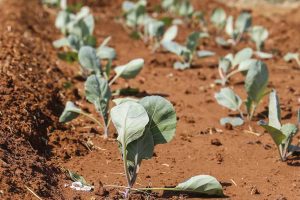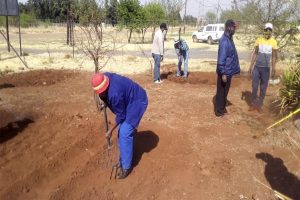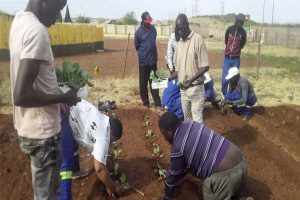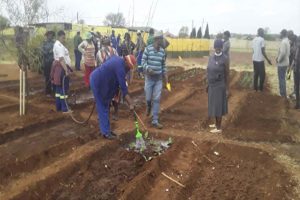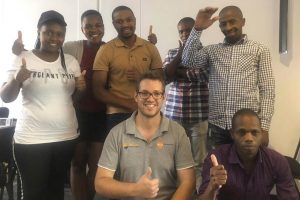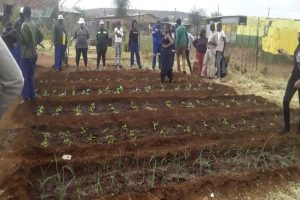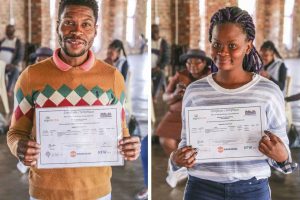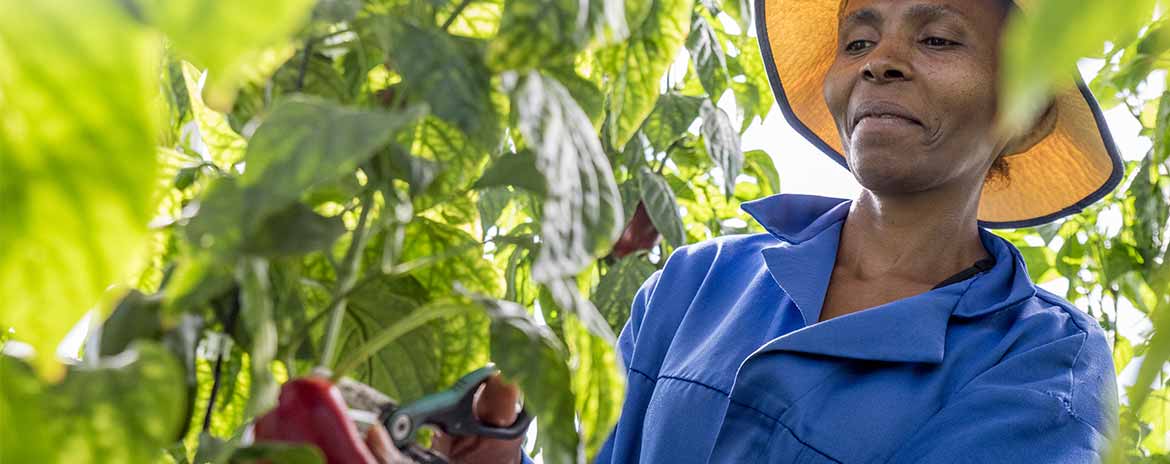
Agricultural training courses
COMBATING POVERTY + PROMOTING ENTREPRENEURSHIP
The long-term economic crisis significantly worsened with the covid-19 pandemic, led to millions of people in South Africa losing not only their jobs, but also, in many cases, the basic commodities for their lives. F.E.E.D. offers these people new prospects for the future, with certified agricultural and business courses. In specifically-designed training programmes for up to 25 individuals and running over 5 days, participants learn the theory of and practical skills for the ecologically sustainable cultivation of plants and medicinal herbs. A major focus in the course is the teaching of sustainable techniques which protect the environment, eg. making compost, the use of bio-pesticides and resource-saving irrigation systems. The basic course takes place in rural areas. In collaboration with church communities participants are trained to become self-supportive. It concludes with each participant being awarded a state-accredited certificate. Those who successfully pass the advanced course can set up as self-employed entrepreneurs in the bio food production sector and will be supported by F.E.E.D. in building their businesses. All training courses are led by qualified trainers. Numerous new jobs and small farms have already been created, and the impetus towards self-help and independent entrepreneurship will be encouraged for the long-term.
2023 - Strong women learn to grow and process healthy food for their families
Planting the seeds for a brighter future
In 2020 thousands of South Africans who had lost their jobs during the pandemic and young adults who had virtually had no access to education could be trained in ecologically sustainable agriculture and in basic commercial skills with the help of the KfW/DEG funds from the COVID-19 response programme. This initiative marked the starting point of the F.E.E.D. development projects in South Africa.
With your donation you can now contribute effectively and sustainably to expand our activities so that more local people learn to become self-sufficient by growing their own vegetables and medicinal herbs or even start up their own little farm business.
PROJECT OVERVIEW
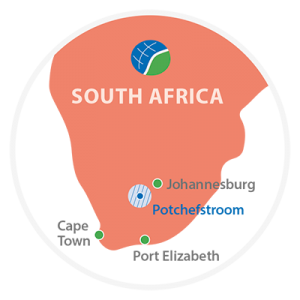
Project region
South Africa: Potchefstroom, Johannesburg, Eastern Cape, Kwazulu Natal; planned expansion to further areas in the country
Project goals
Measures
With your support, young people and adults can have new and better long-term prospects in their lives and work!
Your donation directly reaches people in need:
It’s so easy to give
TRAINING COURSES AND CONTENT
The agricultural and business training programmes are specifically designed to meet the needs of participants and to fit the local regional conditions. The knowledge gained by participants helps them to cultivate vegetables and medicinal herbs. They utilise sustainable methods that protect the environment, either on their own plot of land, or in planting beds, which can be made from old cut tyres, for example. In the advanced training courses, which also cover business management, participants learn how to start their own small agricultural business and operate it successfully. All training courses are run in collaboration with regional, state-accredited training partners and qualified trainers. On successfully passing the final exam, each training course participant is awarded a recognised qualification with a certificate from SAQA, the South African Qualifications Authority.
The basis courses take place in local church communities, where the church gardens are made available for training purposes. With the help of local church organisations, young people and adults can be identified, who are motivated and suitable for the training courses, persons who through unemployment, poverty or simply their remote location have had no or very little schooling. In the training, which mainly takes place in small groups of 25 people, the course content is often presented in visual form, with pictorial displays, because many of the participants cannot read or write. The theory teaching is consolidated with practical exercises carried out under the guidance of the trainer. The courses run over 5 days. On each of the days, F.E.E.D., in collaboration with its local partners, ensures that the shuttle to transport the participants, the relevant hygiene and safety measures, and balanced meals are provided for the whole group, including the teaching staff.
The advanced courses currently take place in the training centre in Potchefstroom. Further training centres are planned, to cover the whole country, and will be arranged together with regional and state-approved partners. Entry on to the course is open to participants who prove themselves on the foundation course to have the ability and motivation to succeed, or they have already passed the foundation course and live close to a training centre. The advanced course run for 15 days, with all costs, including for the shuttle, catering, equipment, hygiene and safety measures, being paid for from donations to F.E.E.D. After having successfully completed the course, participants have all the basic knowledge and skills to run and manage an independent agricultural business and earn an income. F.E.E.D. also supports them in locating and leasing land, and in setting up their business, in order to guarantee the sustainability of the training project.
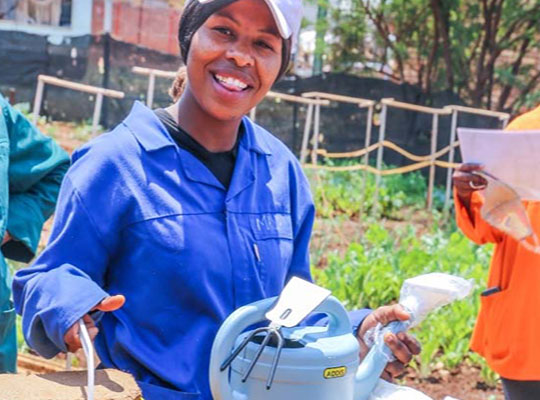
Learning how to provide for themselves with vegetables and herbs to become self-supportive
Content of the agricultural basic course
Theory teaching and practical training on:
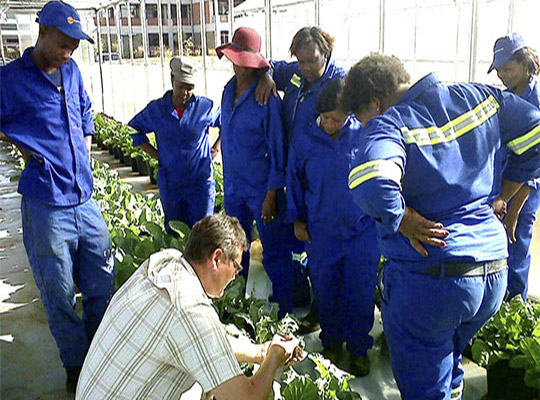
Becoming an independent small farmer and operating a farm profitably
The content of the advanced agricultural and business training course
In addition to the content of the foundation agricultural course, there is more focus here on agricultural and business management knowledge and skills:
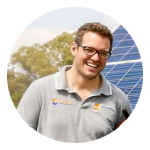
head of the trainings centre in Potchefstroom and lead trainer
‘I can feel the participants’ motivation and eagerness to learn in every training module. I am proud to be able to contribute to their learning, which will enable them to take practical steps to improve their economic situation and their lives for the long-term.’
